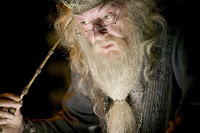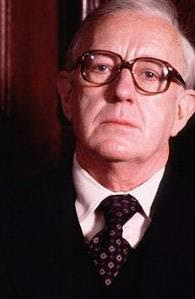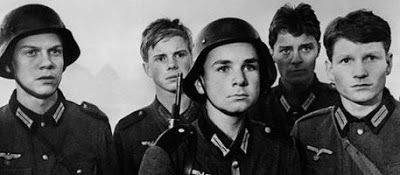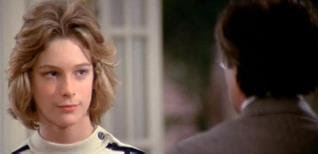[This is the last posting submitted by Will Stanton. — Editor]
Leaving
He
was diagnosed with lung cancer in 1991.
We knew the inevitable end; we just did not know when. Each passing day, each passing year, was, in
its own way, leaving. We both understood
that. Some acquaintances told me, “Why don’t
you leave him?” I would not, not that
way. I stayed.
I
did not cry as a child. My mother told
me that, and we both pondered my difference from other children. Of course, I felt emotion, but nothing seemed
to drive me to tears. That changed later. A special someone came into my life who truly
mattered – – – and then left. It was the
leaving that changed me. As the famous
19th-century, authoress George Eliot stated, “Only in the agony of parting do we look into
the depths of love.”
I
always have been sensitive to others, perhaps unusually empathetic and
caring. That increased significantly
after his leaving, both with people whom I knew, and also even fictional
characters in movies. If, in viewing
well presented stories, I become
particularly attached to characters who have deep bonds with each other, I
apparently identify with them, at least subconsciously; for, if they part from
each other, either in having to leave or, perhaps, in dying, emotion wells up
within me. Such deep emotion comes
suddenly and unbidden. When a good
person dies, leaving the loved-ones behind, the emotion catches within my
gut. When loving, deeply bonded people
part ways, never to see each other again, that, too, deeply moves me. Again, quoting George Eliot: “In every
parting, there is an image of death.”
I
admit it: I never have come fully to terms with reality, with mortality. And, I’m not like so many who choose to hold
deep-seated beliefs that this world is merely a stepping-stone to a so-called
“better world,” beliefs based upon common indoctrination and, perhaps, upon
fear and hope, Oh, I don’t mind so much
the afflictions and death of inhuman humans, those whose cruelty and dire deeds
harm others. But, it is the good people,
the loving people, people who have contributed so much to the betterment of
humankind, whose leaving distresses me.
I would be so much more content if they (dare I say, “we”?) did not have
to leave.
I
understand and feel the passionate, poetic lines of Dylan Thomas:
“Do not go gentle into that good
night,
Old age should burn and rave at close of day;
Rage, rage against the dying of the light.”
So,
with these thoughts of mine being presented close to All Souls Day (or in
German, “Allerseelen”), with the cold days of December soon upon us, I prefer
my thoughts to dwell, instead, upon our happier memories of May, our younger
days, as expressed in the final lines of
Hermann von Gilm poem, “Allerseelen”, “— Spend on my
heart again those lovely hours, like once in May.”
© 23 July 2016
Rejoice
This presentation of mine
today is very personal, and the first important comments are very blunt. So, hang on, I appreciate your patience in my
telling. It deals with my medical
condition over the last several years and my current frame of mind, which has
developed, and perhaps even improved over time.
Among other conditions, my
three major problems — mega-killer immune system killing off all my clotting
blood platelets down to zero, large granular-T-cell leukemia, and the great
possibility of developing blood-clots in any organ, brain, or in the
circulatory system, — could kill me at any moment. So little is understood about these
conditions, and especially in my extreme case, that the medical staff are
writing papers about me. I consider that
a dubious honor.
Yet, here is where I
rejoice. My attitude to all of this has
changed markedly over the last few years.
When I first was diagnosed with these major problems, I was, of course,
surprised, shocked, and dismayed. Yet, a
whole team of oncology doctors and nurses went to great, extended effort to
treat me. For a short time, it seemed to
work.
Then a couple of years ago,
I suffered a truly major event when it seemed that no treatment would ever
help. With each episode, the efficacy seems
to diminish. Many people might totally
despair and wish to suffer no more. I
did not quite despair, but I was profoundly disappointed and felt resigned to
my fate. So yes, I did think about
simply driving up to the mountains some cold night, park on some high point,
and gaze at the mountain scenery until I fell asleep. Of course, I never did. I still have some pleasures and satisfactions
in my life.
Well here again is where I
rejoice. Despite my circumstances, my
whole mind-set has changed and improved.
I do what I need to do with St. Joseph’s Hospital the various Kaiser
clinics, and all the doctors and nurses.
But, it is what I do and think and feel outside of all of that which is
actually making me happy.
For one, just in a week of
being out of the hospital and being able to go home on October 28th
(mind you, with some misgivings of the medical staff), I accumulated as much as
fifty hours of accomplishing important tasks that, otherwise, would have been
neglected and not gotten done. In addition
to being able to take care of bills and other daily obligations, I was here to
go through the five days of repeated efforts to repair my broken furnace (thank
God, the Denver temperature was unusually warm), the six days to deal
frustratingly with Comcast to get my email back working so that I could
communicate with family and friends, and to have one other repair done. Now, if you understand, I felt satisfaction
and actually rejoiced that I was able to complete those tasks.
Secondly, I have spent much
of my home-time going back through some of my older, more interesting essays
and stories for Telling My Story, carefully editing, and (most fun of all)
locating and inserting delightful, augmenting images within the text. I print them for myself, house them in
plastic sleeves, and file them in several notebooks, separated by subject. Yes, I do find great pleasure in this.
Third, at home, I have the
pleasures of my fine piano, my TV, my computer, and all the comforts at
home. And on Sundays, I am able to go
with my friends, whom I call “the usual suspects,” to a particularly good
Perkins restaurant, have a particularly delicious breakfast, and then play the
card-game called “Samba,” a form of canasta at my dining-room table. That simple ritual is a welcome pleasure and
provides me with comfort more than people may realize. I, especially, have the pleasure of sharing
that with my friends.
Good friends, kind friends,
are the most important of all these factors.
I am truly appreciative and perhaps even ecstatic to have these
warm-hearted encounters with my friends, more than they may realize.
And, that brings me to what
finally makes me rejoice. At this
advanced age, with this, yet another, bout of terrible affliction, I finally
have accepted my situation, doing what I need to do but not fighting the
reality of it. I have developed over
time a more relaxed, philosophical feeling and attitude that “what will be will
be.” I am very thankful that, despite my
condition, I feel little pain, very much unlike so many other unfortunate
people. I rejoice in my cheerful,
positive, interactions with people, medical staff and very good friends. My positive, uplifting connection to very
good friends is, perhaps, my most powerful treatment, my greatest joy.
Thank you, all my kind
friends.
© 15 Nov
2016
[This is the
last story (his “Good Bye”) Will Stanton read to the Telling Your Story group
on 21 Nov 2016. Sadly, he passed into
history and memories on 1 January 2017.
He is sorely missed. — Editor]
About the Author
 |
| 25 Apr 1945 – 1 Jan 2017 |
I have had a life-long fascination with
people and their life stories. I also
realize that, although my own life has not brought me particular fame or
fortune, I too have had some noteworthy experiences and, at times, unusual
ones. Since I joined this Story Time
group, I have derived pleasure and satisfaction participating in the group. I do put some thought and effort into my
stories, and I hope that you find them interesting.

















